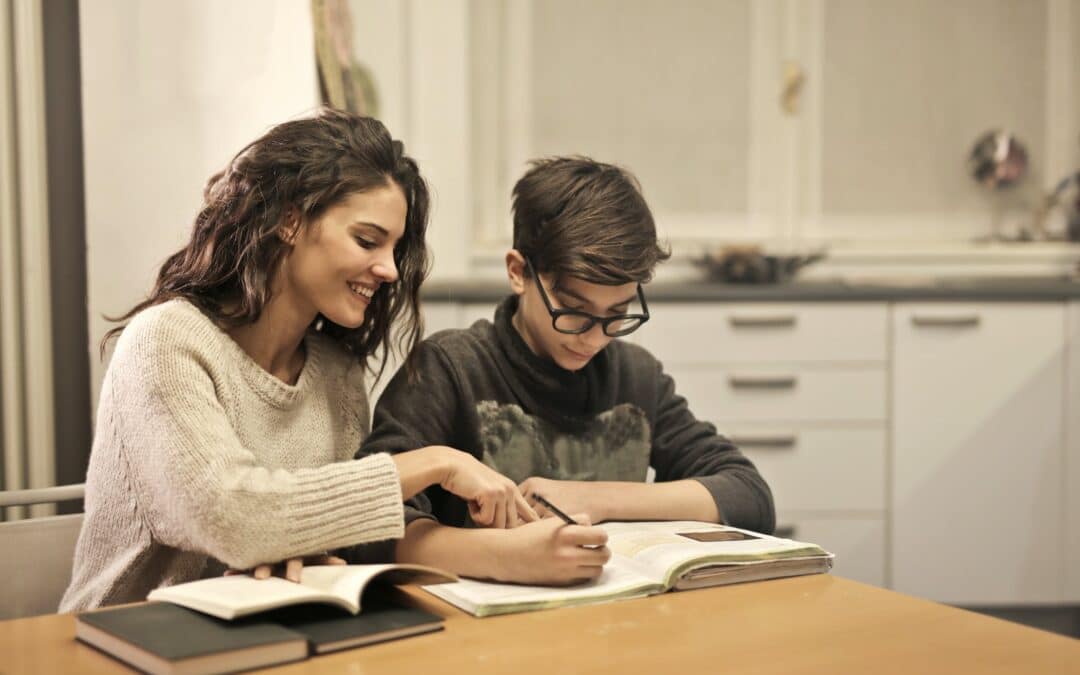As the unpredictable days of pandemic life continue, different groups are dealing with stressors from all angles. Those of us who are parents are included.
Among so many concerns, we’re worried for our health and the health of our children, we may be balancing work and childcare, and we’re striving to keep our kids engaged while they may feel isolated.
And then there’s school.
Most school-age children and teenagers in Metro New Orleans have been out of school since mid-March, right when COVID-19 took hold of Louisiana. Right now, there’s a literal roller coaster of school decisions happening and changing weekly across our parishes.
As stressful as school plan changes and new routines are for you, the parent, this stress is often magnified for our kids, including our early school-age kids, tweens, and teens. These kids are living in vulnerable developmental times to begin with even without a global pandemic looming.
Read on for helpful tips from our counselors to help your children deal with school stressors, adjustment to a new routines, and other mental health challenges in this uncertain time.
Do you or your child need help now? If it’s an emergency, please call 911 immediately. If you’d like to connect with one of our counselors, please contact us here.
Remind Your Child That It’s Okay to Not Be Okay
According to the American Academy of Pediatrics, children and teens are having an especially tough time coping emotionally with COVID-19. Pandemic lifestyle changes may fuel depressed thoughts, mood swings, anger, behavior issues, and a perceived loss of control. It’s important to remind your child, no matter what their age, that it’s okay to not be okay. It’s okay for them to feel unhappy, to feel torn, and to grieve the loss of their pre-pandemic life. Help your child voice these feelings and discover an outlet for their emotions amid the change. They need to know and understand that it’s an uncertain time for all of us and that it’s okay to not be okay.
Keep Communication Lines Open and Check In Often
During this time, your child might be grappling with feelings of isolation due to social distancing from friends and relatives, their longing to participate in activities put on hold, and maybe even less-than-hopeful feelings for the future. Try your best to keep communication lines open between you and your child. Check in with them about their feelings and thoughts often. Listen to them. As school plans take shape – whether they’ll be attending school virtually, in-person, or a combination of the two – remind your child that it will take time to adjust to a new routine and new ways of doing things.
If communication seems to be difficult, especially with tweens and teens, encourage them to talk with an adult confidant they can trust. This person might be an adult relative, a school counselor, or a therapist specializing in young adult issues.
Encourage Your Kids to Stay Active and Connected
Amidst pandemic-triggered change, it’s easy for anyone to fall into a slump. If you notice that your child seems less active, sad, or has lost interest in their usual hobbies, they might be experiencing situational depression. Try to help them stay active by encouraging them to spend time outdoors and get enough exercise. Remaining active helps increase mood-boosting endorphins and improves feelings of positivity. Try making it a family affair and go on a socially distanced hike together or a bike ride. Play games outside with younger kids and find parks and playgrounds you can safely visit together while social distancing.
Remind your child that while they may be feeling isolated, it doesn’t mean they can’t stay in touch with friends and family members from afar. Facetime, Zoom calls, texting, Skype, and Facebook Kids Messenger are all great ways to stay connected with friends and loved ones, discuss feelings and struggles, and gain support.
Help Your Child Lean into New Hobbies
While your child waits for a new school routine to begin and accepts that certain sports, clubs, and other activities may not safely happen this year, help them discover new hobbies. Taking up a new socially distanced sport, creating art, reading books by new authors, cooking, baking, woodworking, or learning a new skill can help restore their sense of purpose.
How Therapy Can Help Your Child During This Uncertain Time
It’s a rough time for everyone right now – especially our kids. If your child needs a little more help working through the heavy emotions brought on by COVID-19, counseling can help. Our professional counselors are experienced in helping clients of all ages overcome a myriad of life issues, including adjustment issues.
Our therapy approach for kids and teens includes:
- Play Therapy for Younger Children – Play therapy is a method that helps children, usually ages 3 to 12, freely express their thoughts and emotions through play while a therapist observes and gains insight. Through play sessions, children learn new coping mechanisms and positive ways to change inappropriate behaviors as well as healthier ways of handling difficult emotions.
- Talk Therapy for Tweens and Teens – Talk therapy and cognitive behavioral therapy helps your tween or teen work through strong emotions, change their perspective about a problem, and learn healthier methods of coping with an issue. This type of therapy also arms them with lifelong strategies that can be used to overcome challenges in the future.
- Therapy for Families – Developing effective communication, empathy, and an understanding of your child’s challenges and perspective is key during this bumpy time. Parent-child therapy and family therapy can help your family learn strategies for better communication, conflict resolution, and team-building.
How to Reach Out to Us
We’re here to help you and your child – especially during this uncertain time. It’s easy to get in touch with us, get an initial consultation, and schedule your session. We offer both in-person and telehealth counseling services for your convenience. Contact us for more information anytime.
- About the Author
- Latest Posts






